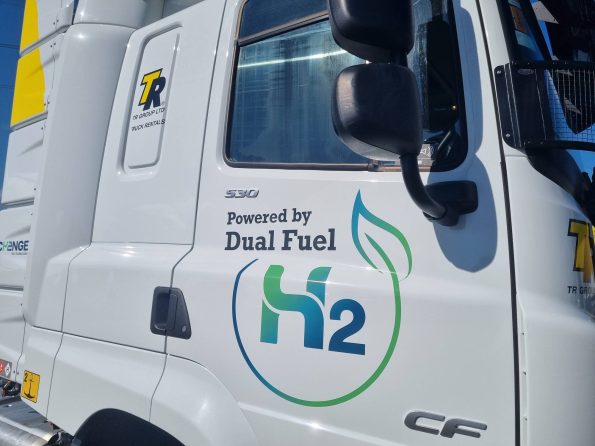The trucking industry is the backbone of Australia’s economy, facilitating the transport of goods across vast distances. However, it is also one of the largest contributors to carbon emissions and environmental pollution. As the world moves towards cleaner energy solutions, alternative fuels are playing an increasingly vital role in reshaping the trucking industry. These fuels offer opportunities to reduce greenhouse gas emissions, improve sustainability, and lower operational costs. This article explores the role of alternative fuels in trucking, their benefits, and the challenges associated with their adoption.
The Need for Alternative Fuels
The conventional trucking industry relies heavily on diesel fuel, which contributes significantly to air pollution and climate change. Rising fuel costs, stringent emissions regulations, and global initiatives to reduce carbon footprints have created a pressing need for more sustainable fuel options. Governments and industry stakeholders are exploring alternative fuels as a viable solution to mitigate environmental impacts while ensuring the efficiency of freight transport.
Types of Alternative Fuels
Liquefied Natural Gas (LNG) and Compressed Natural Gas (CNG)
LNG and CNG trucks produce fewer nitrogen oxides and particulate matter, improving air quality, but it is not popular for large trucks. While LNG is suitable for long-haul trucking due to its higher energy density, CNG is commonly used for shorter distances and urban deliveries. However, the limited refuelling infrastructure remains a challenge for widespread adoption.
Biodiesel
Biodiesel is a renewable fuel derived from vegetable oils, animal fats, or recycled cooking oil. It can be used in existing diesel engines with minimal modifications, making it a convenient alternative. Biodiesel reduces carbon emissions and dependency on fossil fuels while providing similar engine performance. However, its availability and production costs vary, influencing its feasibility for widespread use.
Hydrogen Fuel Cells

Hydrogen fuel cell technology is gaining traction as a zero-emission alternative for heavy-duty trucks. Hydrogen-powered trucks generate electricity through a chemical reaction between hydrogen and oxygen, emitting only water vapour. They offer longer driving ranges and shorter refuelling times compared to battery-electric vehicles. Despite its advantages, hydrogen infrastructure development and high production costs pose significant challenges.
While New Zealand forges ahead with hydrogen trucks, Australia is left lagging behind.
Electric Trucks
Battery-electric trucks are becoming increasingly viable as advancements in battery technology continue to improve. They offer zero tailpipe emissions, quieter operation, and reduced maintenance costs. Major truck manufacturers are investing in electric vehicle (EV) development, and charging infrastructure is expanding to support the transition. However, battery weight, range limitations, and charging times remain concerns for long-haul applications.
Renewable Diesel
Renewable diesel, often referred to as hydrotreated vegetable oil (HVO), is chemically similar to traditional diesel but produced from renewable sources. It provides a drop-in replacement for conventional diesel without requiring modifications to existing engines. Renewable diesel offers lower emissions and improved combustion efficiency, making it an attractive option for fleet operators.
Benefits of Alternative Fuels
Environmental Sustainability
One of the primary advantages of alternative fuels is their ability to reduce greenhouse gas emissions and environmental impact. Fuels such as biodiesel, hydrogen, and electricity contribute to cleaner air and lower carbon footprints, aligning with national and global sustainability goals.
Cost Savings and Energy Security
The rising cost of diesel fuel has increased the appeal of alternative fuels, which often provide long-term cost savings. Additionally, utilising domestically produced renewable fuels enhances energy security by reducing reliance on imported fossil fuels.
Compliance with Regulations
Governments worldwide, including Australia, are enforcing stricter emissions regulations to combat climate change. Fleet operators adopting alternative fuels can ensure compliance with these regulations while demonstrating corporate social responsibility and improving brand reputation.
Technological Advancements
Continued research and development in alternative fuel technologies are enhancing efficiency and feasibility. Innovations in hydrogen production, battery storage, and renewable fuel processing are making these options more practical for widespread adoption in the trucking sector.
Challenges of Implementing Alternative Fuels
Infrastructure Limitations
A significant barrier to alternative fuel adoption is the lack of widespread refuelling and charging infrastructure. Many alternative fuel stations are concentrated in metropolitan areas, making long-haul trucking difficult without an extensive support network.
Initial Investment Costs
The transition to alternative fuels requires substantial investment in new vehicle technology, refuelling infrastructure, and maintenance training. While operational costs may be lower over time, the high initial expenditure can deter small and medium-sized fleet operators.
Vehicle Range and Performance
Battery-electric and hydrogen fuel cell trucks face range limitations compared to diesel-powered counterparts. Additionally, alternative fuel vehicles often have different performance characteristics, requiring adjustments in operational planning.
Supply Chain and Availability
The availability of alternative fuels depends on factors such as feedstock supply, production capabilities, and market demand. Fluctuations in supply chains and geopolitical influences can impact the consistency of fuel accessibility.
The Future of Alternative Fuels in Trucking
As technology advances and policy frameworks evolve, the adoption of alternative fuels in the trucking industry is expected to accelerate. Governments are providing incentives and funding for research and infrastructure development to facilitate this transition. The collaboration between fuel producers, truck manufacturers, and logistics companies will be crucial in creating a sustainable and efficient freight transport system.
While no single alternative fuel solution can replace diesel entirely, a combination of different fuel technologies will likely shape the future of trucking. Hybrid approaches, such as integrating electric and hydrogen fuel cells, can maximise efficiency while reducing environmental impact.
What’s next?
The trucking industry is at a critical juncture as it seeks to balance economic viability with environmental responsibility. Alternative fuels offer promising solutions to reduce emissions, enhance sustainability, and improve fuel efficiency. However, widespread adoption requires overcoming challenges related to infrastructure, costs, and supply chain management. With continued innovation and supportive policies, the trucking sector can transition towards a cleaner and more sustainable future, benefiting both the environment and the economy.
